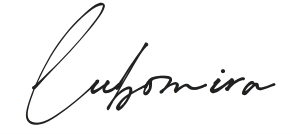Last time we discussed the environment where your energy thrives, and we also discussed the not-self theme i.e. how to know when we are out of our natural alignment, and today, as I reminisce about beautiful Greece and the many tasty foods I ate, let’s talk about your unique digestion profile in human design and how you should be eating to support your body’s optimal health and natural flow of energy.
In human design, our digestive profile isn’t merely about how to consume our food for our greatest wellbeing – it is also about how we best consume, absorb, take in and assimilate all information, experiences and influences in our environment.
What is Human Design?
I love using human design as a complement in my astrology sessions with my clients, as I find that it often resonates with them and gives them many practical tips on wellness and wellbeing; and I also now offer a Human Design and Astro Wellness Session. Human design is essentially a health map showing us how our unique energy moves through the body, and what our body needs to feel greater joy, balance and wellness. It also helps us align to our true essence, so that our entire life flows easier; and how our body communicates with us so that we make the best and most appropriate decision for ourselves.
Human design is often described as an empirical system and a self-discovery system helping people to tap into their unique potential and live in alignment to their true essence. It combines various elements such as astrology, the I Ching, the Kabbalah, and the chakras to create a personalized blueprint for each person, offering insights and guidance for making decisions that are in alignment with their unique energy and body. Human design encourages people to embrace their authentic self and live in harmony with their own nature, as well as the world around them.

What is a Digestion Profile?
In human design the digestion profile, also known as the determination profile, refers to the specific ways in which we process, absorb and assimilate food, information, experiences and influences from our environments.
So this is not merely about food and diet – it is about information and how we take in information from our environment.
The digestion profile is one aspect of our human design profile, and it is part of our energetic makeup and characteristics. Knowing our digestion profile can help us understand our unique energy patterns and needs, and how to best support our health and well-being.
As all else in astrology and human design and life itself, this is only one part of the puzzle and is meant to be taken holistically – so while I’ll give you meanings below, these are only general, and they depend on the rest of your chart and how your energy and aura expresses itself.
The Arrows:
Before we begin, take a look at the top left arrow of your human design chart. This reveals how we take in information and food in the most aligned way for our bodies. When we eat in alignment with our human design, we tend to have clearer minds and easier digestion, and we simply feel better.
In general, arrows facing left are associated with masculine qualities and energies in our aura such as logical, analytical, results-oriented, competitive, urgent, initiative, head-focused. If most of your arrows are left facing, you might find that you have many of your natal chart planets in the masculine elements of fire and air.
Arrows facing right are associated with feminine energy and qualities such as intuition, values, openness, collaborative, process-oriented, patient, heart-focused. If most of your arrows are right facing, you might find that you have many of your natal chart planets in the feminine elements of water and earth.
If your top left arrow is facing right: This is known as passive digestion. You may find that you don’t require as much consistency around when you eat because of your feminine qualities, and you just go with the flow, which is exactly what you should be doing. Fasting or intermittent fasting may feel natural to you, and may be beneficial to you. What’s most important is that you eat when you’re hungry and drink when you’re thirsty, know and listen to the natural cycles of you and your body’s needs, even if it’s 8am one day and 12pm the next.
You respond to and absorb, digest and assimilate information in a traditionally feminine way – going with the flow, listening to and relying on your intuitive, being more creative, flexible and versatile. You need to listen to your intuition when you absorb information and you process things best in your own unique timing, going with the flow and adaptability.
If your top left arrow is facing left: This is known as active digestion. You may find that you thrive when you keep yourself well-nourished and well-hydrated throughout the day and don’t go too long without eating. It might be best to have a routine or a structure such as eating regular meals, eating when you wake up, and having a snack before a meeting. Fasting may not feel natural to you.
You respond to and absorb, digest and assimilate information in a traditionally masculine way – more head-focused and analytical. You might feel best when you have structure, can plan out things, have goals, and you thrive on predictability and consistency.
Something to keep in mind is that as with most of the other variables in human design such as our environment, for many people this right alignment of space and digestion may not come into full understanding until our first Saturn return i.e. after the age of 30, because we rarely know ourselves and what’s best for us before then; but I believe that even if these don’t make perfect sense to you, it is of benefit to consider them and perhaps even experiment with these digestion suggestions to see how you feel.
Perhaps you find that your digestion is evening eating or indirect light, and yet throughout your life you’ve had, or believed you’ve had, greater appetite during the day – but appetite is something we condition ourselves to and it is built when our body gets used to that behaviour, belief or conditioning. Many people with this digestion profile may not even realize that their digestion might be causing them low level anxiety or tummy problems because they are eating at direct light or have heavier meals during the day. So I encourage you to approach human design as an experiment and explore it with curiosity. Take all with a grain of salt of course because these are only general descriptions and not a personal session, but try to consider them and see how your body feels if you apply them.
The 12 Digestion Profiles:
The 12 digestion and determination profiles are: Consecutive, Alternating, Open, Closed, Hot, Cold, Calm, Nervous, High, Low, Direct, Indirect.
If you have Consecutive or Alternating as your digestion, what’s most important for you is simplicity in what you eat. Rather than overwhelming your digestive system with many ingredients, it’s best to take in one ingredient at a time (e.g., sweet potatoes, then salad, then fish), and minimize/eliminate excess ingredients. The simpler the meal or drink, the better or more energized you’ll feel. Practice simplicity in all you consume. This is sometimes called the “caveman” diet, so eat one thing at a time – the bite of fish followed by the bite of fish, rather than alternating with bites of potato. The same goes for digesting information – take it in little by little, one subject or topic at a time, otherwise you’ll feel overwhelmed.
If you have Open or Closed as your digestion, this is all about eating the same foods over and over again. You may find that you’re naturally quite picky about your food. Your digestive system is actually designed for repetition – so it is best for you to stick with what you love and eat what brings you pleasure. Eat habitually and with routine. Don’t feel pressured to try many different things – you are picky and selective and that’s okay – stick with what you love, and even take with you your favourite foods/snacks while traveling. You are a routine eater and very selective, and can be seasonal eater also i.e. change your style and preference with the seasons but the key word here is “habitual”. If it is information, the same principles go – you need to have habits and a routine to follow.
If you have Hot or Cold as your digestion, you may find that you are super sensitive to the temperature of your food. Both hot and cold need a lot of liquids throughout the day as it helps their digestion. Hot may find that their digestion is more relaxed when they consume warmer foods (i.e warmer than their body temperature) such as soup, tea, and food off the stove. And for cold – it is best to take in foods that are lower than their body temperatures such as salads, fruits, raw foods, or foods out of the fridge. Pay attention how hot and cold foods feel in your body. For hot digestion profiles – let cold food warm up and don’t eat directly out of the fridge; and you also benefit from hot showers, baths, saunas and hot climates. For cold digestion profiles – let hot food and drinks cool down before you consume them; and taking walks outside when the weather is cooler may be refreshing for you or sleeping in cooler rooms.
If you have Calm or Nervous as your digestion, you need some time to prepare before eating or digesting anything – it’s like setting the mood. You may find that you are deeply sensitive to the energy levels around you when you are nourishing yourself, whether it’s calm energy or exciting energy. Those with calm need to consume food and information when they are more relaxed, calm and quiter environments. Eating and consuming are meant to feel peaceful for them and soothe their energy; and they want their nervous system to feel relaxed. Those with nervous – prefer to have more activity, stimulation and excitement while eating food or consuming information. They may feel better if they move or exercise before and after eating, and may even love to eat while on the move, or watching a movie, or listening to music. It’s healthy for their digestive system to feel stimulated.
If you have High or Low as your digestion, you are sensitive to the acoustics when you eat, whether it’s high or low – so pay attention to the sounds you’re listening to while eating. What’s most important for you in consuming food and information is what you are hearing – and for your ears to be pleased. Regarding food that could mean people’s voices in restaurants, watching movies or enjoying music while having a meal. If the sound of a space bothers you take your meal elsewhere, and you can also stimulate your appetite by listening to something you love. Low needs to eat less; and high needs to eat frequently and may snack all day long. Regarding information consumption – the voice of the person speaking to you matters and opens or closes you off. If high – you can put on music while studying as it may help you; and if low – take some quiet time, and be mindful that too much noise or high sound may negatively impact your nervous system.
If you have Direct or Indirect as your digestion, you may find that you are most sensitive to the time of day you eat, whether it’s when the sun is up or down. These two are the most sensitive of all digestions and so they need to tune into their body, listen to it and honour its needs. Direct digestions need to eat their heaviest meals during the day when the sun is up, or in direct light, and consume lighter foods in the evenings after sundown. This means having bigger breakfasts, or eating near a window; and they usually eat more in the summer than in winter.
Indirect digestions consume heavier meals best when the sun is down, or indoors, and while they eat during the day too of course, their morning and afternoon meals should be lighter such as salads, fruits, liquids and soups, otherwise they will feel tired. They usually eat more in the winter than in summer – as summer has more light and they naturally have greater energy with the sunlight, which is why they don’t need much food to be consumed during the days; they naturally don’t feel hungry when the sun is high and warm, or they just don’t feel the need to over-eat during that time. Simultaneously, they also get their burst of creative ideas at night or in the evenings, they are very much night owls, which is why they get hungrier at night as more energy is spent through their creativity and idea generation. For them, fasting is appropriate and intermittent fasting is particularly great too (which they naturally do anyway), as when the eat later in the evenings they don’t feel hungry until afternoon next day. Early dinners are not good for them. They are essentially nighttime eaters and may love to snack at night, while they rarely, if at all, ever eat in the mornings. If you are indirect digestion, don’t feel badly if you get hungry after sundown and stalk the fridge at night – and never go to bed hungry. You are meant to go to bed with a full tummy.
Remember that digestion also refers to how we may best ingest, digest and absorb information, thoughts and emotions; so for indirect digestion profiles, it is best to learn through reading and listening, rather than through something like video calls or study groups. They may also not do too well in direct confrontation, as this will contract their energy, and make them go into a freeze, close-off or even feel a sense of repulsion. Spending a bit more time on their own, away from the hustle and bustle of life, learning and going through new information will soothe them and open them up to absorbing new insights and educational content.
To dive into your unique chart, you are welcome to take a look at my Human Design Session.
For more of my services, visit my Offerings.

For more of my writings, browse through my Art of Love.
If you value what I do, you can support me and my work by sharing my articles and poems, buy my books or donate some magic coins in my hat on Paypal. If you would like to work with me, visit my Sacred Offerings.
Your support means so much to me! Thank you wholeheartedly!





